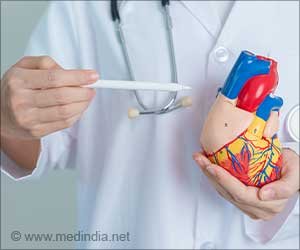Homocysteine can Cease Your Heart

Explaining the relevance of the homocysteine test, Dr. Sameer Gupta, a US board-certified Interventional Cardiologist and Head of Cardiology for the Metro Group of Hospitals shared, “Hyperhomocysteinemia is considered an independent risk marker for atherosclerotic vascular disease and venous thromboembolism or blood clots.
But it is important to interpret the numbers in correlation with the patient profile and other risk factors. Increased levels of homocysteine are often secondary to nutritional inadequacy of folic acid and vitamin B12. It can be corrected with either supplements or a diet rich in fruits, vegetables, and low-fat dairy products.”
Study on Homocysteine
An analysis of data recently published by Tata 1mg Labs from approximately 40,000 homocysteine tests conducted across its PAN India lab testing facilities in the last two years shows that more than 66% of Indians have higher-than-normal levels of homocysteine in their bloodstream, making them vulnerable to heart diseases such as blood clots, heart attacks, and stroke.
Advertisement
Males performed significantly better than females in the test. Whereas 59% of women had elevated levels of homocysteine, men had a substantially lower proportion of 40.1%.
The age group of 18-30 years had the lowest prevalence, at 15.3%, but quickly grew to the highest, at 30%, in the age range of 31-40 years. This was followed by age groups of 41-50 years (about 19%), over 60 years (18.3%), and 51-60 years (17.3%).
“While a high level of homocysteine in the blood is a marker for elevated risk, we do not have good data that measures to lower homocysteine can reduce the risk of heart disease,” Dr. Gupta adds. If your homocysteine levels are high, your doctor may advise you to take vitamin B12, B6, or folate supplements. It is important to emphasize that increasing your vitamin intake alone does not reduce your risk of heart disease; instead, lifestyle changes such as quitting smoking, remaining physically active, and controlling your medical problems are critical.
“A homocysteine test may be ordered when your doctor feels that you may have a vitamin B12 and/or folate deficit,” said Dr. Prashant Nag, Clinical Head, Tata 1mg Laboratories. It can also be ordered as part of a risk assessment for heart disease or following a heart attack or stroke to help guide treatment. This test is especially effective for people who have a family history of coronary artery disease.
“Although most labs consider normal homocysteine levels in the blood to be between 4 and 15 micromoles/liter (mol/L), any figure above 15 is considered excessive,” he says. High homocysteine levels, often greater than 50 mol/L, may harm the lining of your arteries (blood vessels that carry oxygen-rich blood and nutrients throughout your body). It can also cause blood clots or artery blockages. Any clots or damage in arteries significantly increase the risk of a heart attack.”
Regular screening for risk factors and early diagnosis of heart problems is essential for providing prompt treatment and improving health outcomes. Every young adult should be aware of and avoid associating heart disease with aging. Get regular heart health exams whether you have a sedentary desk job or have just begun highly strenuous exercise, like going to the gym, or running marathons.
Reference :
- Role of homocysteine in the development of cardiovascular disease – (https://pubmed.ncbi.nlm.nih.gov/25577237/)
Source: Medindia
Source link
#Homocysteine #Cease #Heart



